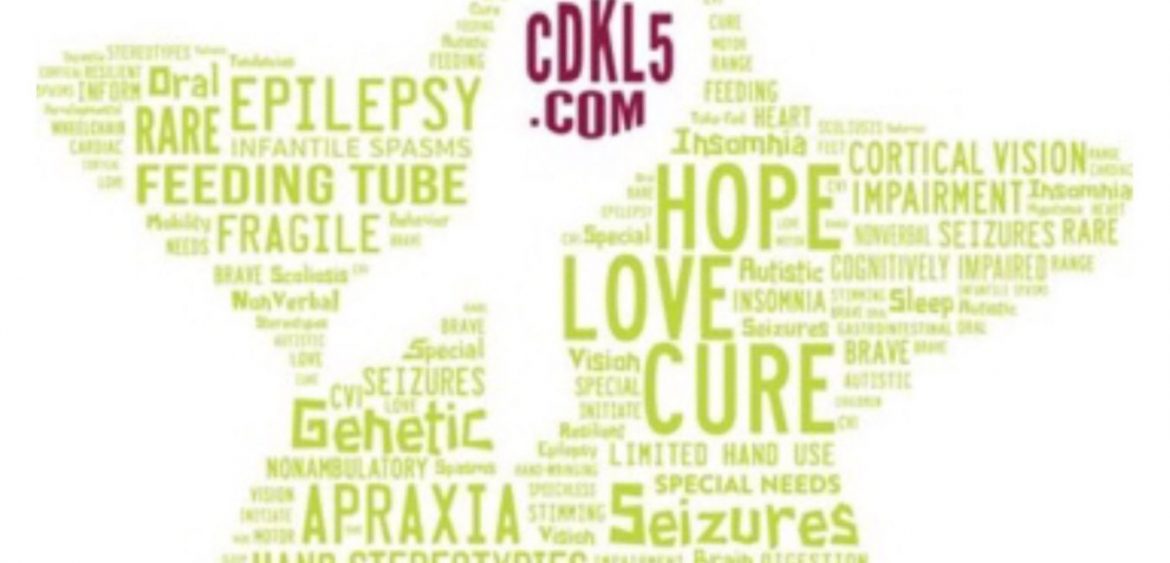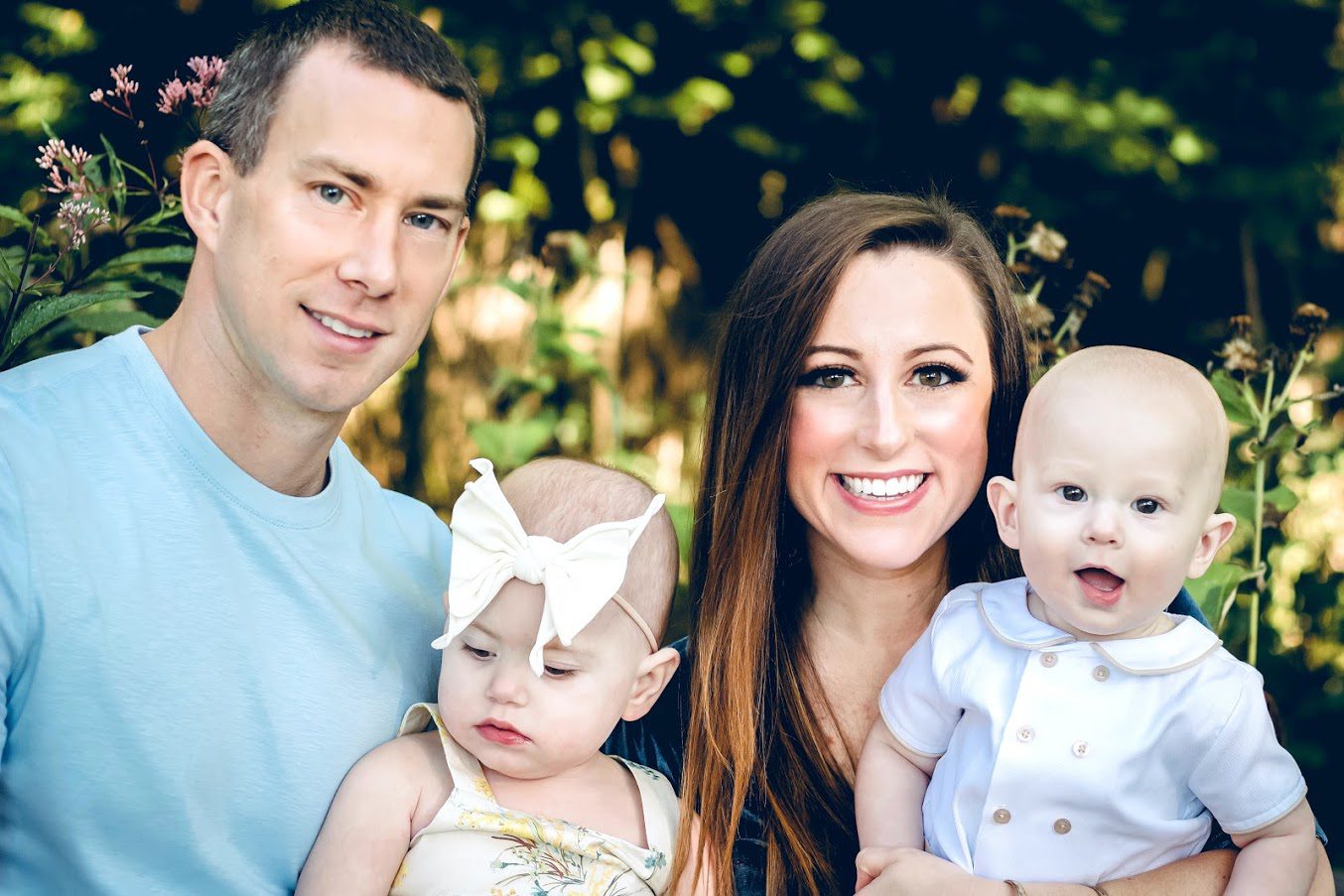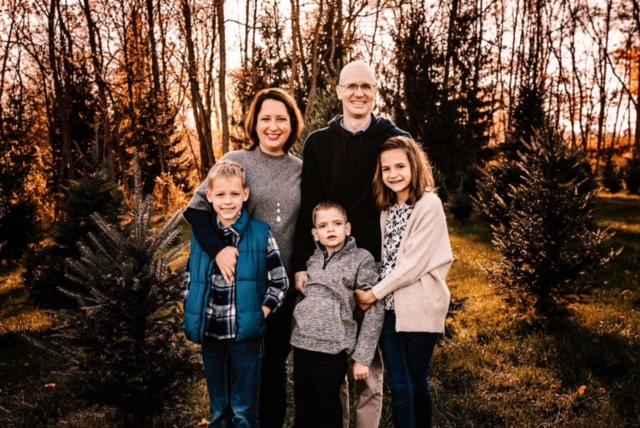CDD is a serious and rare genetic disorder that is caused by a mutation of the cyclin-dependent kinase-like 5 (CDKL5) gene, which is located on the X chromosome and encodes proteins essential for normal brain function resulting in pediatric epilepsy. Two Cleveland area families tell their amazing stories of pain, grief, resilience, and persistence in their fight to save their children.
Dr. Joseph Hulihan, Chief Medical Officer, Marinus Pharmaceuticals, explained that his company is focused on developing treatments in rare epilepsy, including CDD and is conducting drug research and development in order to find a treatment to control seizures associated with the disorder. Several medications used on CDD
patients are initially effective, but then there is a loss of response, according to caregivers. Some medications didn’t work at all. Marinus conducted the first double-blind, placebo-controlled clinical trials to demonstrate efficacy in CDD. In the Phase 3 trial, ganaxolone was examined in pediatric patients by Marinus (1/2 of the participants on ganaxolone and 1/2 on a placebo); using an electronic diary, they
counted the seizures during a double-blind trial for 17 weeks on patients ages 2 – 19. In the Phase 3 trial, the ganaxolone group had a 32.2% reduction in seizures; the placebo group had a 4% reduction.
Marinus will apply for FDA approval in the U.S. Until ganaxolone is approved by the FDA, the drug is available through the company’s Expanded Access Program for patients who need an immediate treatment option, sometimes called “compassionate use,” for a serious or immediately life-threatening disease or condition where no comparable or satisfactory alternative therapy exists. This link provides detailed information and access to the program: https:// marinuspharma.com/science-pipeline/expanded-access-program/.
Early diagnosis of CDD is critical; seizures start very early, often before 12 weeks. If you feel there is something wrong or different about your child, seek help immediately. Dr. Hulihan recommends genetic testing, which will clearly determine if it is CDD. “I would like to thank all of the parents for being involved with the clinical trials and for being heroes to their children,” Dr. Hulihan. www.marinuspharma.com.
 Sarah Schreiber & Daughter Charlotte
Sarah Schreiber & Daughter Charlotte
Charlotte’s seizures began at 3 weeks old; she was diagnosed with CDD before her first birthday. She is now 2 years old. As a new mom, Sarah thought the startle reflex was alarming so she took a video and contacted her pediatrician and eventually a neurologist at the Cleveland Clinic. During the EEG, Charlotte had a seizure. Through genetic testing, they made the diagnosis. Anti-epilepsy drugs either didn’t work or worked for a short time and then were no longer effective. By 3 months old, Charlotte was diagnosed and began a ketogenic diet in hopes that it could help control her current seizure status. The medications she is currently on seem to be helping, but what will work for one person with this disorder may not work for another, so it is always trial and error.
As Sarah will tell you, early diagnosis is critical. Let your gut instinct guide you; if you think something is wrong, get it checked out. Be your child’s advocate, get a second opinion, and don’t give up. Don’t feel guilty about your child—you didn’t do anything to cause this. Find the joy in your children.
Charlotte’s abilities have come a long way; she is now trying to sit up. She is vision impaired, wears glasses, and is non-verbal. Through meds and therapy, her seizures are now random. Sarah also has a 13-month-old son and is expecting another baby in July. Her husband and family have been there for her during this long journey and together they are moving forward.
 Megan Strok & Son Ryan
Megan Strok & Son Ryan
Ryan had his first seizure at 8 months and was diagnosed at 2 years with CDD. Ryan is almost 10. In the beginning, they struggled to control the seizures and tried 12 different meds, combinations, and doses until they found the right one. Some only worked for a while; others didn’t work at all. When Ryan’s seizures began, it was like a black hole because they had 2 other children and the oldest was 4.
Ryan is now stable and happy, He walks, but balance and endurance are issues. He’s vocal, but he doesn’t talk. Megan’s older daughter and son have learned to be very empathic. They all look for the silver lining in everything. Faith and prayer has sustained Megan as she realized that this journey is not a sprint, but a marathon. Her extended family has been very helpful.
Working with a neurologist at Cleveland Clinic, genetic testing was key in diagnosing CDD. Having worked at the Clinic for 21 years, Megan’s experience helped her manage all of the issues including denials from insurance companies. She encourages everyone to find your voice, be more assertive, stand your ground, and advocate for your child.
Megan looks for inch stones—any movement or progress— because milestones are too tough. Megan served 3 years on the board of the International Foundation for CDKL5 Research.
A private Facebook group has connected Sarah, Megan, and other families with children diagnosed with CDD: CDKL5 Parents Support Group. There is also the private CDKL5 Extended Family and Provider Support Group.





